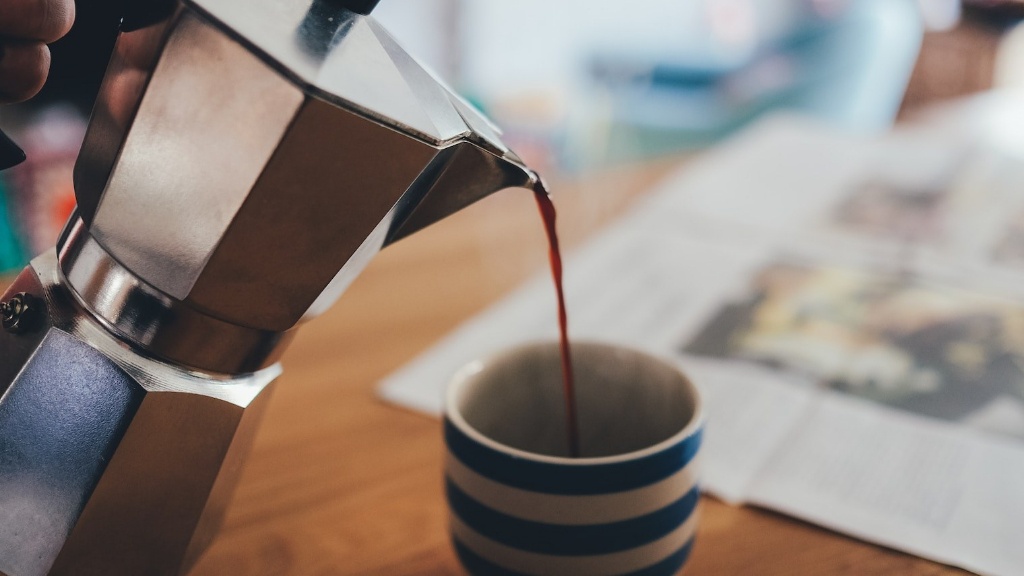Effects on Blood Pressure
Coffee is known to increase blood pressure, and it’s a double whammy when you drink it on an empty stomach. Research has shown that drinking an 8-ounce cup of caffeinated beverage raises a person’s blood pressure level. Individuals who are already suffering from hypertension should be cautious when consuming coffee, as it can exacerbate their condition. Additionally, it leads to an increase in cortisol levels, the primary stress hormone. The combination of higher cortisol and raised blood pressure can have serious implications for long-term health.
Alleviate Constipation
For some, drinking coffee on an empty stomach can help alleviate constipation. This is due to the diuretic effect of caffeine, which makes you urinate more. It can soften stools, making them easier to pass. Drinking coffee on an empty stomach also may help increase the production of gastrin and cholecystokinin hormones, which are associated with the reduction of stomach spasms and the improvement of digestion. However, the diuretic effect can also lead to dehydration if not checked.
Boosts Energy
Drinking coffee on an empty stomach can rev up your metabolism. Caffeine acts as a stimulant, helping to wake you up and increases alertness. It increases dopamine, a neurotransmitter that enhances concentration, motor coordination, and sense of pleasure. Additionally, coffee has been proven to enhance physical performance, as it helps to break down stored fat and use it as fuel. This lead to an increase in energy level and improved physical performance.
Long-Term Effects on Digestive System
Studies have suggested that coffee can reduce the secretion of certain enzymes in the digestive system, leading to diseases like Crohn’s and irritable bowel syndrome. The long-term effects of coffee are still being studied, but it is suggested that drinking coffee every day on an empty stomach can aggravate the issues in such individuals. It can also lead to unpleasant symptoms like abdominal cramping, bloating and constipation.
Flushes Out Nutrients
The diuretic effect of coffee can flush out vital nutrients from your body. It is especially harmful to individuals with malabsorption, an inability to fully absorb nutrients from food. When drinking coffee, the diuretic effect increases urine production and leads to the excretion of nutrients like calcium, vitamins and electrolytes, before they are absorbed by the body. This can occur when you have coffee on an empty stomach, as the absorption process has yet to begin.
Effects on Adrenal Health
Coffee can stimulate production of cortisol, a hormone that helps the body manage stress levels. Regularly drinking coffee on an empty stomach is linked to chronic cortisol production and can lead to a host of health issues. Its effect on cortisol is particularly pronounced when a person is already feeling fatigued or tired. The resulting high cortisol levels can cause problems with adrenal health in the long-term.
Interaction with Drugs and Medication
It isn’t recommended to consume coffee while taking certain medications as caffeine can reduce the efficacy of these drugs. Caffeine can also increase the rate at which some drugs are absorbed into the body, leading to an overdose of such substances. It’s advised to speak with a healthcare professional before consuming coffee on an empty stomach.
Effects on Sleep
Coffee’s most known side effect is difficulty sleeping. Although caffeine is known to increase alertness, it can interfere with the body’s sleep process. The stimulating effects of coffee can make it harder for the body to relax and fall asleep when ingested on an empty stomach. Consuming coffee during late evening or overnight will increase the risks of insomnia and further disrupt your sleep quality.
Regulating Coffee Intake
Coffee can be consumed in moderation and on an empty stomach. It might be beneficial to drink coffee on an empty stomach to gain some of the aforementioned benefits. However, it’s important to regulate your intake and not rely solely on coffee to get through the day. Additionally, it’s essential to be mindful of any negative effects one might experience such as heartburn, restlessness and insomnia.
Better Alternatives to Stimulate Alertness
Coffee isn’t the only thing you can consume to stay alert. There are several alternatives that might provide more energy without the jitters or any of the long-term effects associated with coffee. For example, exercising or meditating can help one stay energized without overstimulating. Eating smaller, more frequent meals throughout the day can also help keep energy levels up.
Adding Milk and Sugar
While adding milk and sugar to coffee can make it more palatable, it can have an adverse effect on the stimulating effects of caffeine. Milk has a slimming effect on the caffeine molecule reducing its stimulating effects. Sugar is known to cause an insulin spike, which could lead to a sugar crash if one is not mindful of his/her intake. Sugar also has other health implications such as raised triglycerides, inflammation and increased risk of heart disease.
Peak Performance
For many, coffee is used to increase alertness, mental performance, and concentration. Its stimulating effects can be helpful in getting through an extra tough day or a hard task. It’s essential, however, to track your performance when you rely on caffeine to get through the day. Overuse can lead to psychological dependency, thus hindering work performance and reducing the quality of work.
Finding the Right Balance
Striving for a healthy balance between coffee and other types of fluid or energy-boosters is the best way to ensure one’s health and well-being. On average, it’s best to restrict coffee consumption to no more than three cups a day. Additionally, it’s important to break the habit of drinking coffee on an empty stomach as this can cause significant changes to your body. Coffee should be consumed as part of a balanced diet, ensuring that other dietary requirements are met.



